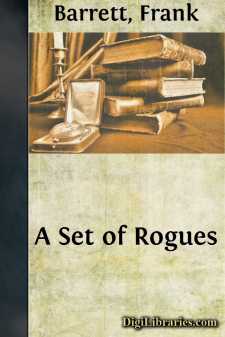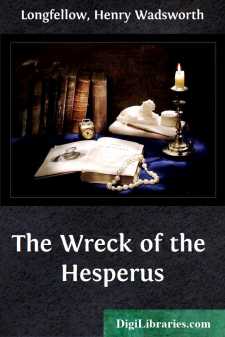Categories
- Antiques & Collectibles 13
- Architecture 36
- Art 48
- Bibles 22
- Biography & Autobiography 813
- Body, Mind & Spirit 142
- Business & Economics 28
- Children's Books 16
- Children's Fiction 13
- Computers 4
- Cooking 94
- Crafts & Hobbies 4
- Drama 346
- Education 46
- Family & Relationships 57
- Fiction 11829
- Games 19
- Gardening 17
- Health & Fitness 34
- History 1377
- House & Home 1
- Humor 147
- Juvenile Fiction 1873
- Juvenile Nonfiction 202
- Language Arts & Disciplines 88
- Law 16
- Literary Collections 686
- Literary Criticism 179
- Mathematics 13
- Medical 41
- Music 40
- Nature 179
- Non-Classifiable 1768
- Performing Arts 7
- Periodicals 1453
- Philosophy 64
- Photography 2
- Poetry 896
- Political Science 203
- Psychology 42
- Reference 154
- Religion 513
- Science 126
- Self-Help 84
- Social Science 81
- Sports & Recreation 34
- Study Aids 3
- Technology & Engineering 59
- Transportation 23
- Travel 463
- True Crime 29
Sort by:
by:
Various
SURREY ZOOLOGICAL GARDENS. In our volume, just completed, we noticed the origin of this Establishment; and the annexed engravings report favourably of its progress, They represent Two of the Entrance Lodges. Another rustic building, the appropriation of which is not yet decided. And a glazed circular building intended as a Refreshment room, but at present occupied by tropical birds, &c. All three...
more...
by:
William W. Mann
THE ESPERANTO ALPHABET(WITH PHONETIC PRONUNCIATION). The Esperanto Alphabet has 28 letters—23 consonants, 5 vowels:—A, a(ah) likeainfatherorpa; aspatro(pah'troh). In unaccented syllables it should not be dwelt upon, and in all cases it should be pronounced quite purely, without the slight drawlingr-sound which is sometimes added to the corresponding vowel in EnglishahB, b(bo) as in EnglishbC,...
more...
by:
W. Warner
Gallick Reports: Or, A Collection of Criminal Cases adjudg'd in the Courts of Judicature in France. In which is Comprized, An Account of Arnold du Tilh, an Impostor, who deceived a Man's Wife and Relations, and puzzled, for a long Time, the Parliament of France. Memoirs of the famous Madam de Brinvilliers, who poisoned her Father, and two Brothers, and attempted the Life of her Sister,...
more...
by:
Frank Barrett
CHAPTER I. Of my companions and our adversities, and in particular from our getting into the stocks at Tottenham Cross to our being robbed at Edmonton. There being no plays to be acted at the "Red Bull," because of the Plague, and the players all cast adrift for want of employment, certain of us, to wit, Jack Dawson and his daughter Moll, Ned Herring, and myself, clubbed our monies together to...
more...
by:
Norman Gale
OILING. (A Song In and Out of Season.) Excuse me, Sweetheart, if I smear,With wisdom learnt from ancient teachers,Now winter time once more is here,This grease upon your lengthy features!Behaving thus, your loyal friendNo whit encourages deception:Believe me, Fairest, in the endThis oil will better your complexion.Fairest, believe! Did you imagine in the bagTo sleep the sleep of Rip Van Winkle,Removed...
more...
GREETINGShake, Pard! I'm mighty proud o' you!(I'm know'd as "Yukon Bill");You blazed th' trail an' blazed it true;——Some o' my friends I see y' knewOn old Che-cha-ko Hill;But say, old man, y' clean forgot my friend, "Swiftwater Bill!"You was a kid in pettic'utsWhen I went in, a man;Grub-stakin' with two other goats——We...
more...
INTRODUCTION. "Norman's Woe" is the picturesque name of a rocky headland, reef, and islet on the coast of Massachusetts, between Gloucester and Magnolia. The special disaster in which the name originated had long been lost from memory when the poet Longfellow chose the spot as a background for his description of the "Wreck of the Hesperus," and gave it an association that it will...
more...
Not many of us remember Otterbourne before the Railroad, the Church, or the Penny Post. It may be pleasant to some of us to try to catch a few recollections before all those who can tell us anything about those times are quite gone. To begin with the first that is known about it, or rather that is guessed. A part of a Roman road has been traced in Otterbourne Park, and near it was found a piece of...
more...
Chapter One. Number 9A, Albemarle Square. “Don’t drink our sherry, Charles?” Mr Preenham, the butler, stood by the table in the gloomy servants’ hall, as if he had received a shock. “No, sir; I took ’em up the beer at first, and they shook their heads and asked for wine, and when I took ’em the sherry they shook their heads again, and the one who speaks English said they want...
more...
by:
Vance Simonds
Huckster Heaven, in Hollywood, set out to fulfill the adman's dream in every particular. It recognized more credit cards than it offered entrées on the menu. Various atmospheres, complete with authentic decor, were offered: Tahitian, Parisian, even Afro-Cuban for the delectation of the Off-Beat Client. In every case, houris glided to and fro in appropriate native costume, bearing viands...
more...











